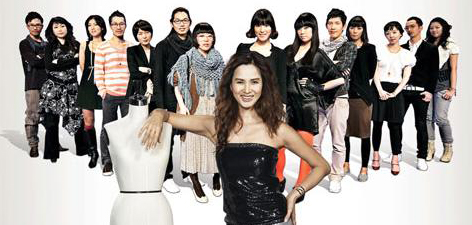 PRO
PROPrograms referred to as reality competitions are popular among the young for their limitless competition. Some Korean reality competitions have come out, and these programs have begun to play their own roles in our culture, for example, entertainment (SuperStarK on Mnet), cooking (Edward Kwon’s Yes Chef on QTV), and fashion (Project Runway in Korea on OnStyle). The viewing rate of these programs is increasing, and they have become popular TV shows.
The most characteristic trait of the programs is the winning participants can get a hundred million won or employment opportunities. Therefore, hundreds or thousands of people try to participate in these programs even though the losers cannot even get any performance fees. Even though some people say reality competitions tend to emphasize the law of the jungle, we can get some merits and benefits from the programs.
First, participants can experience self growth through the continuous challenge and increase their confidence. Next, viewers can experience many different things in these programs. For example, as reality programs show various formats and methods of making our dreams come true, viewers can indirectly experience what they want to try through reality programs. Finally, winners can get economic benefits or even reach higher social status than their present one.
Seo In-guk, the winner in SuperStarK on November 9, 2009, got a one hundred million won prize, and he can receive support to become a singer with the famous producer Bang Si-hyuk. Now he can achieve his dream and get the opportunity to release his first solo album within one month.
Reality programs are in fashion now, so these programs must keep being developed. Because reality competitions show a cross section of competitive society, viewers learn not only competitive power but also adaptability to the society in order to survive in a hard world. To sum up, reality competitions are a guide book to competitive society.
By Lee Kyung-min
KMG Junior Reporter
kmlw77@kmu.ac.kr
KMG Junior Reporter
kmlw77@kmu.ac.kr

CON
Reality competitions are programs on which the winner takes all. In these programs, participants sing, dance, and compete with other participants. Finally, all participants are excluded except one person. The winner becomes a star. On the other hand, other participants escape viewers’ memory.
Recently, many reality programs are broadcast not only in foreign countries but also in Korea. For example, in the U.S.A., America’s Next Top Model has been broadcast since 2003. There are many reality competitions in Korea, too. Akdongclub (2001), Showvival (2007), and the recent program SuperStarK (2009) are programs of this kind.
Why do people watch and are excited about these programs? The first reason is that these programs inspire viewers because ordinary people, not entertainers, appear and show off their ability. Their effort moves viewers to work harder. Second, these programs are dynamic. Each week, winners and losers change and judges give praise to or even strongly criticize participants. These factors attract TV viewers.
Even though the programs are interesting, there are criticisms of such programs. First, such TV shows reveal participants’ thinking without any filtering. Therefore, participants’ privacy can be violated. Participants easily speak ill of other people. As they criticize and don’t trust each other, many viewers can feel and accept a competitive and trustless atmosphere. Second, only the winner is treated well in the entertainment world. The winner appears in commercial films or debuts in the field he or she wants. On the other hand, there is no support for other competitors. For example, Seo In-guk, the winner of SuperStarK, won 100 million won and debuted in the entertainment business. However, about 720,000 other competitors went home without anything.
These programs accelerate a socially competitive atmosphere. In this situation, people try only to be the winner. It can cause people to compete with others. Finally, the process to decide who will be winners is not public, so it makes many viewers question the result. That is, viewers cannot help thinking why the person becomes a winner.
Reality competitions have good points, too. For example, they give participants an opportunity to debut through these programs. However, only one person can survive and be treated well, and the other competitors increasingly escape viewers’ minds and they can fall into despair. It is dangerous to increase these competitive TV shows.
By Park Sa-lom
KMG Reporter
aeiou01@kmu.ac.kr
KMG Reporter
aeiou01@kmu.ac.kr








